How to Use Refractory Bricks to Build a Circular Furnace Lining?
How to build a round refractory brick furnace lining? How many options are there for building a round refractory brick furnace lining? Arc brick? Curved mother-in-law buckle brick? Knife brick? The following suggestions are given by experienced manufacturers and sales of refractory bricks, as well as the construction team of refractory brick linings.
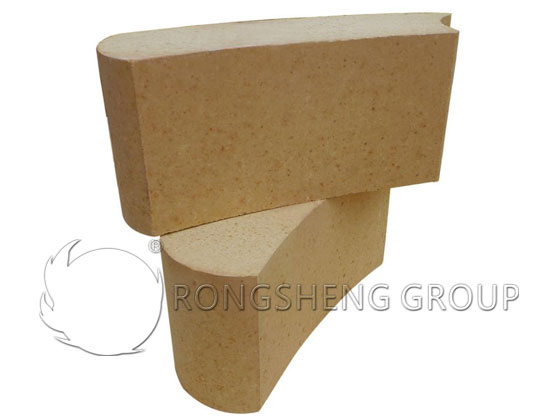
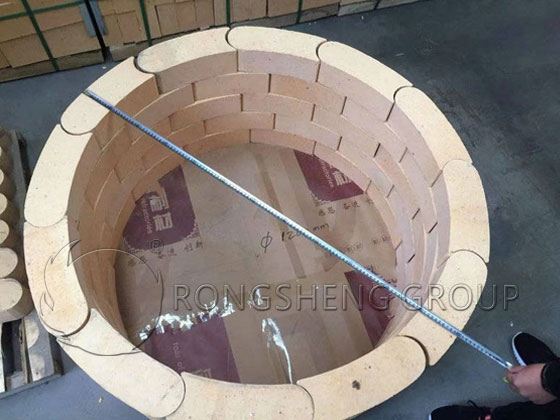
Option 1: Building with arc bricks
The arc of the arc brick is a semicircle, and the other end is a groove, which can be flexible no matter how thick it is. Because it has no axis and the size is slightly deviated, it can also be built into a circle, so it is called arc brick. This kind of brick is used more in ladles. Curved high-alumina refractory bricks are mainly used as the lining of steel drums. In the past, it was mainly clay, but now it is gradually replaced by high alumina bricks. High-alumina arc brick is an aluminum silicate refractory material with an alumina content of more than 48%. It is formed and calcined from bauxite or other raw materials with high alumina content. High thermal stability, and refractoriness above 1770°C. Good slag resistance.
According to the usage, we believe that high alumina arc bricks have the following advantages.
- High service life, more clinker clay bricks increase by 210%.
- The reduction of unit consumption also shows the characteristics of high alumina arc bricks. The reduction of unit consumption can explain the corresponding reduction of non-metallic inclusions in molten steel.
- Check that the cross-section of high-alumina bricks has better corrosion resistance to slag and molten steel than multi-clinker clay bricks.
- Due to the roundness at both ends of the arc-shaped refractory brick, it can be moved back and forth to adjust the roundness when laying bricks. Therefore, it is convenient to build refractory bricks, and the brick joints can generally reach 1 mm.
- The vertical joints of arc bricks are smaller, which is 70% less than that of standard refractory bricks. In this way, the erosion of the molten iron layer moving up and down and deep into the brick joints is corrected.
- Due to the improvement of the quality of refractory bricks, the thickness of the lining bricks can be reduced, and the capacity of the steel drum can be increased accordingly.
- Due to the long service life and the convenience of bricklaying, the labor required for laying steel drums behind the furnace is reduced, and the utilization rate of steel drums is increased.
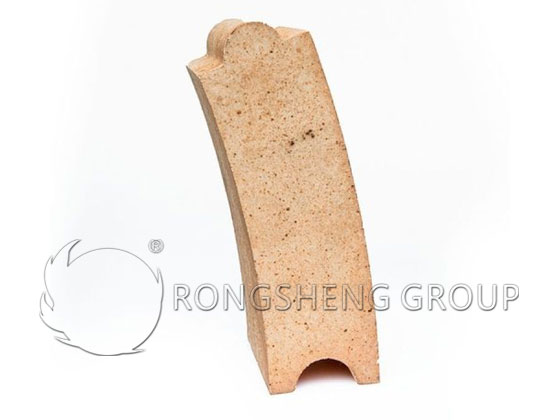
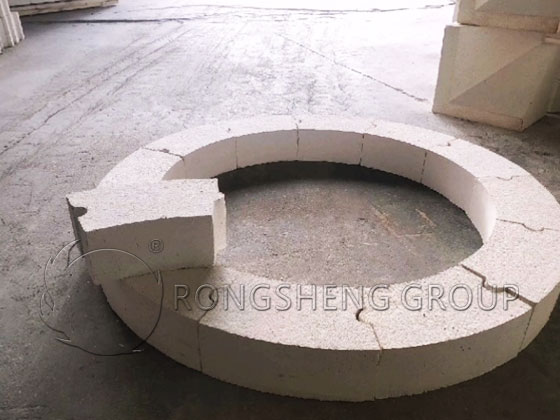
Option 2: Masonry with arc-shaped mother-in-law buckle bricks
The arc-shaped letter buckle refractory brick has a small semicircular protrusion at one end and a small groove at the other end. Compared with arc bricks, the masonry is stronger and the gaps are smaller, but the disadvantage is that there is no arc bricks that can change the arc at will. There is no arc brick for the masonry of circular furnace linings with different inner diameters. The curved letter buckle is also made of clay or high alumina, and the performance of high alumina is the overall clay refractory brick.
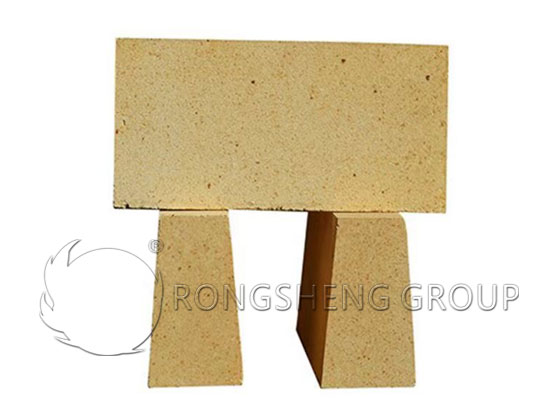
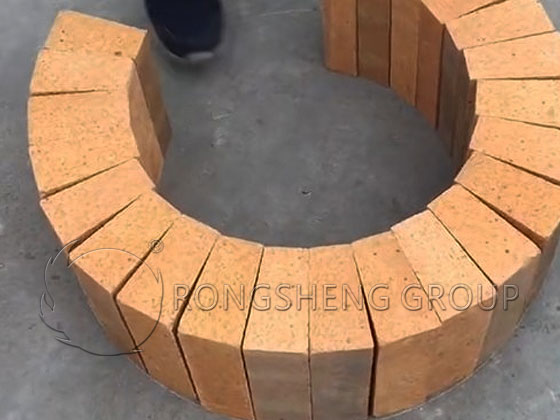
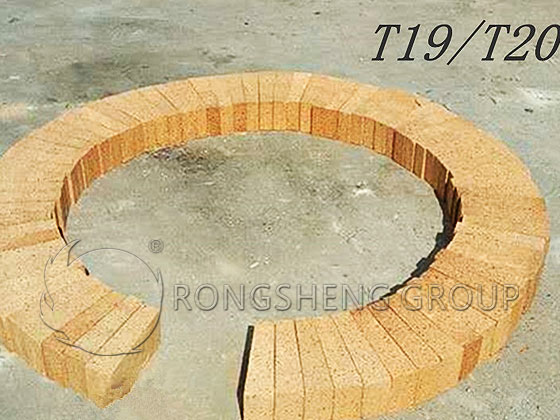
Option 3: Laying bricks with knife bricks or ax bricks
It can be built with knife bricks T38 and T39, or with ax bricks T19 and T20.
Rongsheng refractory brick manufacturers can provide high-quality masonry refractory bricks for circular refractory linings in various materials. Free consultation, info@aluminabricks.com.